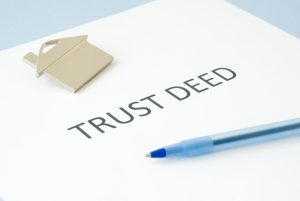Reducing personal debt – Some Advice
Getting out of debt is something that takes time. Rather than looking for a ‘quick fix’ that’ll get you out of debt overnight, you should be focusing on ways to reduce your personal debt at a sensible rate – neither too quickly nor too slowly.
What does ‘too quickly’ mean?
It might not seem to make sense, but there is such a thing as ‘too quickly’. There are many things in life that are basically more important than reducing your personal debt levels, such as paying the mortgage / rent, paying Council Tax, buying food, heating your home, getting to work…
So there’s no point putting every penny you have towards your unsecured debts if it means you’re falling behind on your essential bills – or risking your family’s health.
What does ‘too slowly’ mean?
In general, the more quickly you repay a debt, the less it’ll cost you in the way of interest. If you’ve never done it before, it’s well worth spending some time with an online credit card calculator.
Just put your details in and see how much difference it makes when you ‘overpay’ your debt every month (when you pay more towards it than you actually have to). Just be prepared for a shock when you see how much more it’d cost if you only ever made the minimum payments.
If you’d like to talk about your situation and get some help figuring out what to do, you can talk to an expert at Debt Advisory Centre Scotland, who supplied this article.
Take the right approach for you
So it’s up to you to decide how quickly you should tackle your debts. You’re the one who knows how much you can afford, how many of your luxuries you can live without, how much overtime you can work, and so on. Having said that, getting some professional debt advice could make a big difference, and keep you from running into problems that thousands of people have already overcome. As they say, there’s no point reinventing the wheel. Plenty of people before you have put their debts behind them – and the right debt adviser will know which approach is likely to help in your situation.
Here’s a brief – very brief – look at some of the approaches you could consider, depending on your situation. Just remember that it’s no substitute for one-to-one debt advice from a professional who can listen to your story and answer your questions.
Overpay your debts
As mentioned above, pay more than you have to. Just make sure you’re not neglecting any of your financial commitments: you should only use ‘spare’ money to overpay your debts, so double-check to make sure you’ve paid everything you have to before you do this.
Consolidate your debts
If your credit rating is good enough and you have access to low-interest rate loans or a balance transfer credit card with a 0% introductory period, consolidating your debts could make it easier to make some real headway on them.
As before, just remember that the more slowly you repay a debt, the more it’ll cost you in the long run. Having said that, taking out a debt consolidation loan could be an opportunity to arrange a shorter repayment period: as long as you’re confident that you can stick to it, this could be a good approach to take if you’re not sure you’ll be able to stick to making more than the minimum payment towards your debts every month.
Consider a professional debt solution
Not all debts are manageable. If you can’t afford even your minimum payments every month, you could really benefit from getting some professional debt advice. There could be a professional debt solution that can help you.
